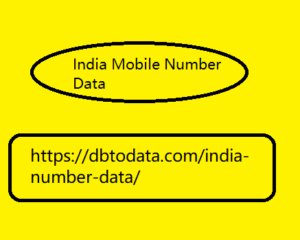Post by account_disabled on Mar 12, 2024 0:54:13 GMT -5
No one would ever dream of asking Steven Spielberg: «Excuse me, how did you manage to make “Minority Report”?» . Or Paul McCartney which trick he used to write a song like “Let it be”. Yet I get inundated with requests about what the trick is to having an effective online presence. These questions are commonplace. As if knowing the right publication time or which hashtag to use was enough to make the difference between a content that can be found or noticed and one that goes totally unnoticed. There are also those who think that technological means make the difference.
Having a better computer doesn't mean you'll be able to express yourself better, owning India Mobile Number Data an expensive camera won't guarantee you take great photos, having a fine musical instrument won't make you an excellent musician. If the world of communication was based on "tricks", to create many effective communicators, it would be enough to teach them (given the great market demand there are those who do it or pass them off as such) in books, at events or with "blog posts" . Almost all of us today are able to use Facebook, a computer, a video camera and start a blog. This, in my opinion, is magnificent. For the first time in history anyone has the extraordinary possibility of understanding whether their ideas can be appreciated by an audience. Anyone can acquire, at ridiculous costs, a series of skills that favor the effectiveness of the diffusion of their theories, once they materialize into content.

In reality, it is not the means, but the ideas that generate good content and determine its relative success. Content is rewarded when it is original, with a personality and a unique voice. Often, we tend to imitate rather than innovate, simply because imitating requires less energy. Comments like “what do we need?” are not uncommon. I can do what Chiara Ferragni does too . " “When someone says: I can do this too, it means that he knows how to do it again otherwise he would have already done it before” – Bruno Munari The trick What makes you and your content more effective? Are there "tricks" that can be easily applied to be successful in communication? There are many techniques, which must be studied, to facilitate distribution, acquisition and consolidation of the audience. Techniques that accompany daily practical activity and refine personal, unambiguous and distinguishable communication from the rest.
Having a better computer doesn't mean you'll be able to express yourself better, owning India Mobile Number Data an expensive camera won't guarantee you take great photos, having a fine musical instrument won't make you an excellent musician. If the world of communication was based on "tricks", to create many effective communicators, it would be enough to teach them (given the great market demand there are those who do it or pass them off as such) in books, at events or with "blog posts" . Almost all of us today are able to use Facebook, a computer, a video camera and start a blog. This, in my opinion, is magnificent. For the first time in history anyone has the extraordinary possibility of understanding whether their ideas can be appreciated by an audience. Anyone can acquire, at ridiculous costs, a series of skills that favor the effectiveness of the diffusion of their theories, once they materialize into content.

In reality, it is not the means, but the ideas that generate good content and determine its relative success. Content is rewarded when it is original, with a personality and a unique voice. Often, we tend to imitate rather than innovate, simply because imitating requires less energy. Comments like “what do we need?” are not uncommon. I can do what Chiara Ferragni does too . " “When someone says: I can do this too, it means that he knows how to do it again otherwise he would have already done it before” – Bruno Munari The trick What makes you and your content more effective? Are there "tricks" that can be easily applied to be successful in communication? There are many techniques, which must be studied, to facilitate distribution, acquisition and consolidation of the audience. Techniques that accompany daily practical activity and refine personal, unambiguous and distinguishable communication from the rest.
